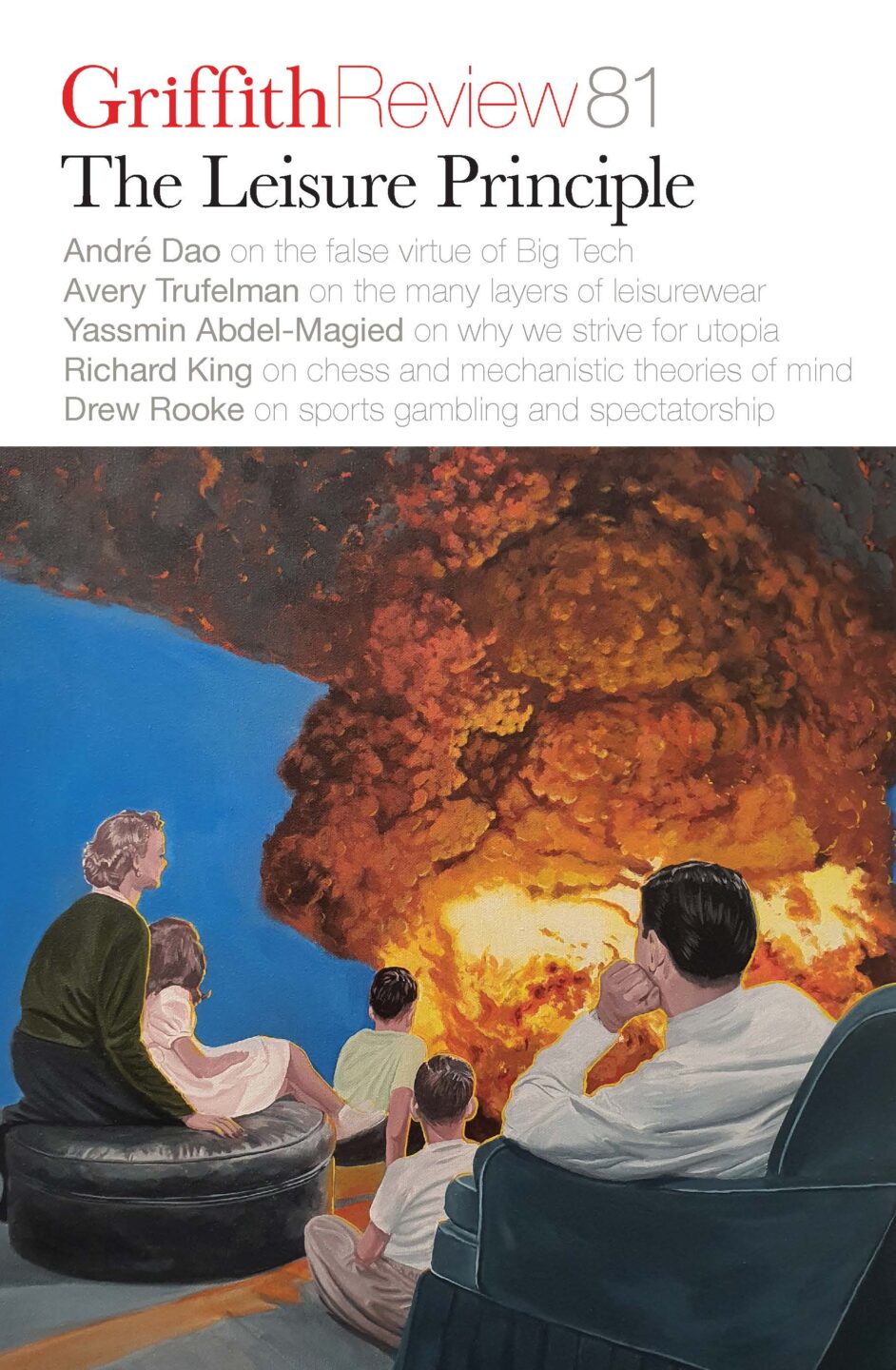Featured in

- Published 20230801
- ISBN: 978-1-922212-86-3
- Extent: 200pp
- Paperback (234 x 153mm), eBook


Already a subscriber? Sign in here
If you are an educator or student wishing to access content for study purposes please contact us at griffithreview@griffith.edu.au
Share article
About the author

Raelee Chapman
Raelee Chapman is a writer of short fiction based in Canberra. Her stories have appeared in Overland, Southerly, Westerly, Mascara Literary Review and Best...
More from this edition

Louche
Poetry On the bleached beachof café seats, he’s drenched, hairslicked, tarnished as tinespulled up from a shipwreck, savea naughty part:silver forelock a hookswaying as he...

Their presence
Poetry Straight away you’re taller, sprung firm andspry by their ecstatic vocal runs and upscaling,by their tripping lightly over pages of dogma in the opening chorus...

Hump day
Fiction‘Well, I’m sure all your questions will be answered very soon. Genius Inc. is holding a press conference at 3 pm,’ Sam says. ‘The Prime Minister will be there too, since the government is partly funding them now, after their cancer discovery. It’s serious, Prue. Try to have an open mind, alright? Keep your phone close. I’ll call you straight after.’ ‘Sure,’ she yells after him, ‘if we survive it.’